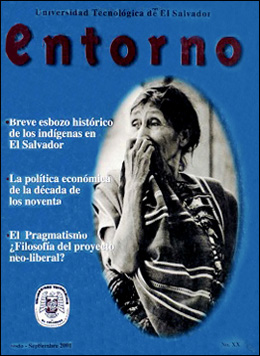The economic policy of the nineties
DOI:
https://doi.org/10.5377/entorno.v0i20.7666Keywords:
Economic political, El Salvador, Economic and social problemsAbstract
At the beginning of the nineties, the peace agreements did not contemplate any aspect of the economic and social problems, they left a sequel of effects for society that we should not forget.
So, so that the capital did not interfere, because the army would be diminished, it had very good prizes as it is in the public domain. For its part, the left also won prizes and let things happen.
Thus began what we call the lost decade of neoliberalism, when the policies for globalization demanded the International Monetary Fund and the World Bank (IMF / WB) had a high price for the general and that the obedient leaders of the right and in power, they accepted and even helped to achieve the approval of policies that it is time to review, because we are quite late in seriously evaluating them and modifying them for the good of the country.
They started by lowering import taxes to open our markets to imports, and reducing the highest marginal rate of income tax to 25% or a little more than a third of what it was at a time when there were those who understood Science. of the Treasury, that is, they knew what they were doing and when they also acted independently and not following slogans from economically powerful sectors.
Downloads
350
Downloads
Published
How to Cite
Issue
Section
License
© Entorno
It is required that the authors transfer the right of re-production of their articles to the Entorno Journal

